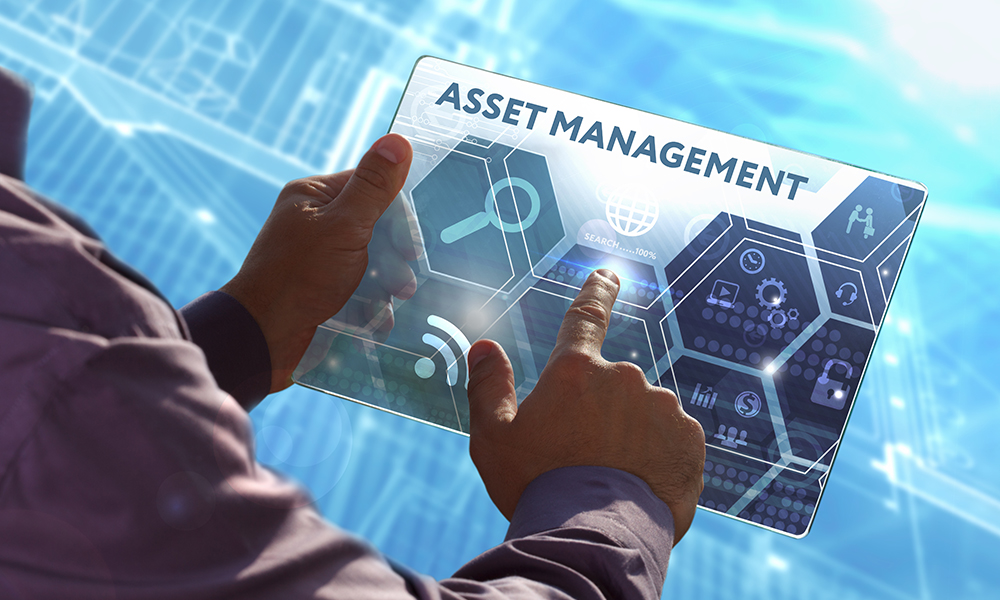PwC’s 2020 asset management report titled A Brave New World says that assets under management in the SAAAME (South America, Asia, Africa and the Middle East) economies are set to grow faster than in the developed world. Globally, investable assets for the asset management industry was predicted to increase to more than $100 trillion by 2020, with a compound annual growth rate of nearly 6%, according to the report. It further states that changing markets and investor needs will combine to produce a positive environment and huge opportunities for asset managers through 2020 and beyond.
Keeping this in mind, MECN speaks with Chris Roberts, CEO of Eltizam Asset Management Group, to learn how the asset management industry can keep pace with the changing developments.
Roberts says: “By now, most of us have made peace with the fact that we are in a time of increased uncertainty. Instead of resisting change, being open to it and adopting a creative and innovative mindset to evolve with it might be the best thing to do right now. Following the establishment of new standards and requirements for the management of various assets within the construction industry, technology has now taken centre stage. It is now redefining efficiency with the help of artificial intelligence (AI), internet of things (IoT), B2C and B2B apps working alongside updated processes and practises that are now becoming the norm.”
Customer facing technology

Technology advancements in the field of asset management, just like in any other field, can make our lives much more comfortable. Thanks to the rise of customer facing technology following the COVID-19 pandemic, customers are now more comfortable using technologies that initiate paperless processes, online payments, AI chatbots, etc. In light of movement and travel restrictions during the pandemic times, apps that eliminate increased physical mobility have also seen a rise. PropTech solutions are the only way to drive further efficiencies in the industry. It’s time to stop paying less, stop trying to move accommodations to the lowest level to get your technicians and cleaners at the lowest cost base. Fewer employees, however, better compensated in both salary and benefits utilising technology is the way to drive efficiencies, companies and asset owners that resist this approach will find themselves irrelevant in the next three to five years.
Trade-offs between unit space and community facilities

As observed in recent times, Generation Z has very different views on unit space and community facilities and is even willing to trade apartment space in exchange for community services like better-specked gyms, yoga and communal living spaces. COVID-19 has, to an extent, encouraged this approach, not reversed it, and more people feel comfortable to work and play in their community rather than outside. The extension of this is, therefore, looking at co-living communities into the immediate and medium-term.
Energy management
Technology advancements in the field of asset management, just like in any other field, can make our lives much more comfortable. Thanks to the rise of customer facing technology following the COVID-19 pandemic, customers are now more comfortable using technologies that initiate paperless processes, online payments, AI chatbots, etc. In light of movement and travel restrictions during the pandemic times, apps that eliminate increased physical mobility have also seen a rise. PropTech solutions are the only way to drive further efficiencies in the industry. It’s time to stop paying less, stop trying to move accommodations to the lowest level to get your technicians and cleaners at the lowest cost base. Fewer employees, however, better compensated in both salary and benefits utilising technology is the way to drive efficiencies, companies and asset owners that resist this approach will find themselves irrelevant in the next three to five years.
Customer experience
With the management of buildings becoming more complex, the demand for improved services and better engagement is constantly rising. Not surprisingly, technology has made it possible to engage customers more often and as a result, customer feedback, which used to be once a year survey, are monitored more frequently now. The experience with your customer is the most critical concern of any service company.
New transport requirements
Asset management industry is currently increasing its focus on the management of parking spaces, keeping pace with the rise of ‘micro-mobility’ solutions. As a result, it is witnessing the incorporation of electric car charging stations and their management, and liaising with scooter rental companies for space. To keep pace with the developments in this regard and to accommodate the demands of future generations that value travel, shared transport and on-demand rides, landlords are now required to transform underutilised spaces. This can turn concrete parking structures into commercial spaces to help reduce building costs or to enhance communities with more desirable living experiences.
Smart buildings (IoT)
With smart buildings now equipped with sensors, meters and other devices to regulate, monitor and manage building assets and services, the transmission of data is witnessing unprecedented developments. This degree of interconnectivity contributes to less physical maintenance and less power consumption. Besides, asset management companies have also started to adopt AI algorithms to make building management system controls more user-friendly and energy-efficient. We are rapidly moving from preventative and reactive maintenance plans to predictive maintenance technology that in time will become the standard platform for building management.
Remote property management
It is no news that property managers have switched to working from an office that is centrally located within a territory or managing properties remotely. With many management activities being done online or through PropTech, the need for property managers to be on-site has reduced. The constant drive to PropTech based solutions is only moving this faster over the last two to three years, as an immediate consequence property leasing with brokers is going to be the first role that the industry loses. Generations are changing the way businesses do business, as older generations move from working to retirement, practices that seemed absurd to achieve even five years ago are now a distant memory.
International standards
The adherence to international standards have become more of a norm and is expected by all clients these days. Therefore, along with a strong emphasis on quality management, your approach has to be firmly aligned in line with global standards. Technology is again making it easier for the globe to unite in common best practice, especially when you are looking at e-learning, you can be in a room with 20 people learning about best practise from 20 different countries at the same time.
Security of assets
What has been evident over the last eight months is the need to control environments and reduce the need to have constant random visitors, drivers or workmen from entering the building, as much as possible. Solutions have already been implemented to utilise bio-technology and cameras to recognise and test delivery drivers, maintenance teams etc. and not only does this provide a greater level of security in your building but also helps to ensure another level of security due to the pandemic.
Short-term rentals/Co-Living
This will soon be another rising trend, even more so when travel restrictions are lifted. Generation Z and indeed the future generations of A & B who will work remotely are always on the lookout for short term accommodations as they tend to travel and explore places and cultures more. Because of the highly flexible nature of their work environments, future generations are more transient and flexible and make the most of their freedom to travel and switch places as often as they like. Building owners and service companies who are willing to adapt to the future and invest in the future will be much more part of future revenue streams, which are being developed now.

